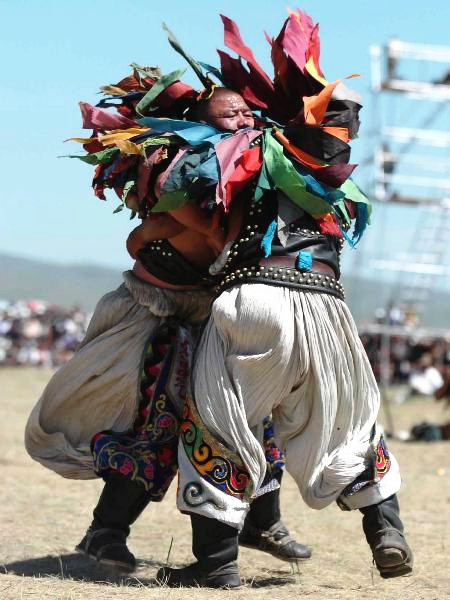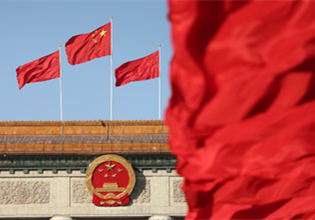Mongolian wrestling
 |
Boke, the Mongolian word for wrestling, has a history of more than 2,000 years. |
Year:2006
Sort:Acrobatics & Sports
Area:Inner Mongolia Serial
No.:Ⅵ-16
Declarer:Inner Mongolia autonomous region
Boke, the Mongolian word for wrestling, has a history of more than 2,000 years. It is a rugged hand-to-hand sport, relying more on raw physical power than a wide variety of techniques, and is loved by Mongolian athletes, scholars and statesmen for its unique combination of athleticism and aesthetics.
Ⅰ. Origin
Boke is one of Mongolia's age-old "Three Manly Skills" (along with horsemanship and archery).
The basic premise behind Boke is to force an opponent to touch any part of their body other than the feet to the ground, placing them in a position of inferiority. This kind of training served the Mongol hordes well in their conquests, earning them a reputation as fierce soldiers on foot and on horseback.
It was this type of military might that allowed Genghis Khanto to win battles at the end of the Song Dynasty in 1127. Genghis Khan considered wrestling to be an important way to keep his army in good physical and combat shape. Boke was also used occasionally as a way of eliminating political rivals. The Qing (1646-1911) Manchu imperial court held regular wrestling events, mainly between Manchu and Mongolian wrestlers.
Ⅱ. Features
Mongolian wrestling is different from both Chinese wrestling and Japanese sumo wrestling, distinguished by its rules, methods, uniforms and fields. There are no weight or age restrictions, nor fixed numbers, as long as the numbers are even numbers that rise from two, four, six, eight, sixteen, then continue to double through to 128. All wrestlers are matched by drawing straws or by respected judges. The game uses single-elimination rules, in that victory or defeat is determined once. The loser is not allowed to compete again; therefore half of the contestants will be eliminated each time.
At the judge’s call, opponents first shake hands to show respect to each other, and then begin to wrestle. There is no time limit and the opponents can pull, kick, trip, push and hold. However, one is not allowed to wrestle while holding the other's legs, kick arbitrarily, or pull the other's trousers. The person who touches the ground with any part of the body above the knees is the loser.
Awards are given to both contestants. First place in Boke is an achievement the Mongolians don't take lightly. Not only will they weigh him down with prizes like golden cups, scarves and other artistic works - but he'll receive a live camel as well. In addition, the champion will greatly increase his chances of getting married. After all, a Mongolian man isn't considered a real man unless he wrestles.



 Print
Print Mail
Mail





